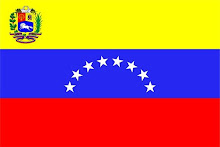A while back, I wrote a post on making trouble: The technique by which players could elaborate on the dangers or problems their characters encounter as they wrote the story of a challenge, rather than just leaving the troubles to what the narrator initially established.
When you're writing on a challenge, you're writing not just your own character's story but the story of the challenge itself. I've already written a great deal on the need to write not just your character's actions, but the results of those actions, and how those results impact the challenge going forward.
I've also written on the need to leave things open for other players to use.
Today, I'd like to take another look at that, from a slightly different angle: Questions.
When you are writing any story, the thing that gets readers involved is questions. You establish questions early on, and as the story goes on, you provide answers to those questions. That's the cycle of a story. Create mystery or uncertainty in the early going, and provide truth and certainty later on. I think we tend to understand that in writing pretty naturally - it's easy to get the idea that for the story in general, for instance, I would be starting out a story asking the question of "Who can defeat Doctor Fear?" and end up answering it with "Bravery Man can defeat Doctor Fear!" by the end.
Silly superhero names aside...we get that part, right?
But smaller parts of a story follow the same cycle. Challenges, for instance, are all about questions and answers.
The existence of the challenge itself presents a question. Usually, the answer is in the form of one of the final outcomes of the challenge, as written by whoever plays the final card. But that isn't the only question and answer cycle that can be contained in a challenge.
As I've mentioned in prior articles, telling the story of the challenge is up to the players once it is established...and thus, the players have the opportunity to define further questions asked by the challenge, and to answer those questions.
This goes back, somewhat, to the concept of making your own trouble, but questions aren't always about trouble. They're about mystery, or about the unknowns of a challenge. They might be about what's going to happen next...but they might also be about what just happened. Why did it happen? What was the cause? Or, what is the consequence?
The early moves of a challenge are about questions. The later moves are about answers.
To put it another way, you don't want to get too definitive too early.
If you're playing a Strength card on a challenge, you want to move the challenge in a positive direction related to the Outcomes. That's fine, that's expected, that's what you should do. But you also want to look at where, exactly, you are in the challenge's story.
Is this late in the challenge's story, or early?
Should you be wrapping up challenge elements? Or is this the point where the story of the challenge is still being established?
If this is the second card play of a nine-card challenge, well, you're probably still more at the establishing point of the challenge's tale. Everything still feels uncertain, unclear. Even if you're moving the challenge in a positive direction, it shouldn't feel stable. The gains shouldn't feel firm.
There should be questions.
The gains made by Strength plays feel uncertain, perhaps even risky. There are open questions about how they can be maintained. The positive movement of the challenge feels tentative.
Save solid gains for later in the challenge, or especially for points where based on the Strength/Weakness balance of a challenge, it feels unlikely (or even impossible) for it to turn back to Weak. Late in a challenge, when there's three Strengths on it and only one Weakness with one or two cards left to go, that's the time to do something like managing to fell the enemy commander and drive the army into disarray, or find the one solid lead that gets you to the person who knows what you need to know - and all you have to do is convince him to share.
The same can be said of Weaknesses, too! When a challenge is in the early going, Weakness plays are about establishing the potential for things to become very bad. They're about putting your character into trouble, or having your character cause a problem that might become truly devastating in time. If the second card play of a nine-card challenge leaves the allied lines entirely routed, or leaves one of the player characters down and out...that might be pushing things too far. But towards the end of a challenge, especially when the Weaknesses have the Strengths outnumbered, well, those might just be exactly what is called for.
Depending, of course, on the nature of the challenge and the outcomes!
So...what you want, in the early going, are questions. Uncertain situations, things that are still a little up in the air. Maybe they're trending one way, or maybe the other. Or maybe, especially with neutral cards, they're totally uncertain. But...they're questions. They're situations that still need to be resolved. Mysteries that still need their truth.
When I say "questions," now...I don't mean literal, straight-up questions, worded as such. I don't mean that you write in, "Mighty Arnbjorg struck forth into the enemy lines and drove the defenders back, but has he dared too much? Will the enemy swarm in around him?" That's actually a great question to ask...but that's not how I'm suggesting you write it. If the end of your move leaves you thinking you should really tag on "Find out next episode!" you're probably being a little bit too direct.
Questions are things you draw from a story, not things the story shoves in your face.
So if you're writing that bit, instead, what you do is write about how Arnbjorg's attack drives back the enemy, and they are temporarily stunned and confused by the sudden ferocity of their foe. But the commanders are shouting orders, and the enemy ranks are starting to form up again. The enemy general is shouting to regain order, and pointing his sword at Arnbjorg. The enemy's attention is on him.
The question is understood. Will Arnbjorg's gains be able to be held? Or will the enemy swarm back in and put him in danger now?
And late in the challenge? That's when the answers start coming in force. The final few moves of the challenge introduce answers to the lingering questions of the challenge - the questions asked along the way by other player moves, and finally the questions that established the challenge in the first place.
When you're making moves in the latter half of a challenge, or further, that's when you need to take a good look at what is still out there to be answered. What doesn't feel like it has been resolved? If you aren't writing the final move, don't resolve everything, but maybe there are still some things that are lingering out there and you can wrap something up. Maybe earlier, Arnbjorg was shown fighting for his life and for the line against the enemy after he managed to break in among their defenses...and that situation still feels like it needs an answer. Now's your chance. Do your character's actions stabilize Arnbjorg's gains at last? Or does something go wrong in the attempt and lead the enemy to swarm in at last?
Transform uncertainty to certainty. This situation has now definitely gone right...or definitely gone wrong. There's no longer a feeling that this element of the story can go a different way. Arnbjorg and Skjoldis hold the line solidly, preventing the enemy from gaining access that way...or, Arnbjorg and Skjoldis are forced to withdraw, and the enemy breaks through and can't be driven back that way. An answer.
Now...there's nothing wrong with answering something earlier in the challenge, or questioning something later. This isn't a hard and fast rule. It's a guide. Early in the challenge, tend towards questions. Late in the challenge, tend towards answers.
The reason is...questions provide opportunities. They leave things open for other players. They give inspiration, so someone can further the story of a challenge. Answers, meanwhile, close doors. When a situation is resolved, the part it played in the story is over and players need to look elsewhere for inspiration. So: By asking questions early in a challenge, you provide lots of inspiration for other players to use. But late in a challenge, you don't want to risk leaving dangling plot threads or forcing the final player to wrap up every little bit of a challenge...so it's time to start closing some of the extra doors so that the final player only has the main challenge questions (or close to that) left to resolve.
This isn't the only way to think of a challenge's story, and I don't think it's something you should hold in your head as some kind of sacred, infallible rule...but it's a helpful way to think about how you can write on a challenge, and I think if you take a look at moves - yours, and others - and ask yourself, "What questions are asked?" and "What answers are given?" you will find your challenge writing feeling more like a full, cohesive story.
jueves, 23 de mayo de 2019
Suscribirse a:
Enviar comentarios (Atom)







No hay comentarios:
Publicar un comentario